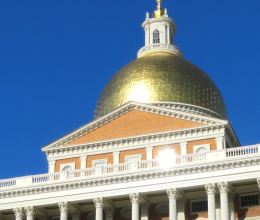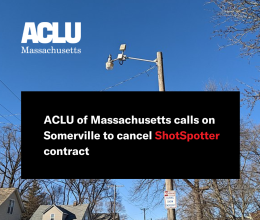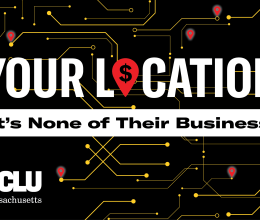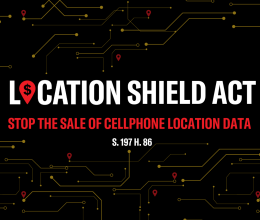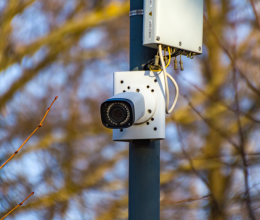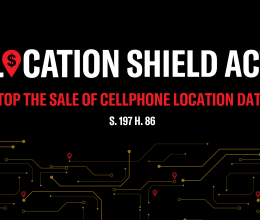
“Press Pause on Face Surveillance,” an ACLU campaign to pass a statewide moratorium on the government’s use of face surveillance technology, today announced another round of endorsements, including prominent racial justice advocacy groups.
Four racial justice organizations today announced their support for the ACLU of Massachusetts campaign and a Massachusetts moratorium on government use of face surveillance technology. The Black Economic Council of Massachusetts, Charles Hamilton Houston Institute for Race & Justice, Data for Black Lives, and the New England Area Conference (NEAC) of the NAACP now join more than 50 organizations that back the “Press Pause on Face Surveillance” campaign.
“In the Commonwealth, as well as across the country, residents in communities of color remain the most scrutinized,” said David Harris, managing director of the Charles Hamilton Houston Institute. “This scrutiny often occurs as a result of police activity and, as such, leads to massive racial disparities in policing and processes of mass criminalization and incarceration. Facial recognition software and the surveillance it generates threaten to exacerbate the problem on both ends, by relying on biased recognition algorithms and leading to increased disparate law enforcement. We must slow the adoption of this technology.”
“Face surveillance technology is not new, but a modern-day version of the historical practices & policies used to target, control and criminalize Black, Brown and immigrant communities,” said Yeshimabeit Milner, founder and executive director of Data for Black Lives. “It is the technological extension of a racist criminal justice system that is motivated by profit at the expense of the lives of millions. We must recognize that just because a technology is new, doesn’t mean it’s innovative, especially those that jeopardize the civil and human rights of us all. Until then, we must press pause and say no to face surveillance tech.”
The ACLU of Massachusetts recently launched “Press Pause on Face Surveillance” to build awareness about the civil liberties concerns posed by face surveillance and the need to pass a statewide moratorium on the government’s use of the technology. Numerous studies have shown that face surveillance technology often fails to correctly classify people with darker skin; for Black women, error rates can be as high as 35 percent. In addition, face surveillance software tends to assess Black men as aggressive, even when they have neutral expressions.
“Face surveillance technology is dangerous when it works and when it doesn’t,” said Kade Crockford, director of the Technology for Liberty Program at the ACLU of Massachusetts. “People of color are often subject to the greatest levels of government scrutiny; with face surveillance technology’s dangerous racial bias, this technology has no place in our communities without safeguards and accountability. It’s time for us to stop perpetuating racial bias and press pause on government use of face surveillance in Massachusetts.”
These racial justice organizations now join dozens of other community advocacy groups that support a statewide moratorium on government use of face surveillance technology. Leading law reform advocates announced their support earlier this week.
An ACLU poll shows 79 percent of Massachusetts voters support a moratorium on government use of face surveillance technology, which is currently unregulated in the state. An ACLU-backed bill currently before legislators on Beacon Hill would establish a statewide moratorium on government use of face surveillance and other biometric screening technologies until the legislature imposes checks and balances to protect the public’s interest. Meanwhile, municipalities like Cambridge, Somerville, and Brookline are taking action to bring this technology under democratic control by introducing and enacting municipal bans.
